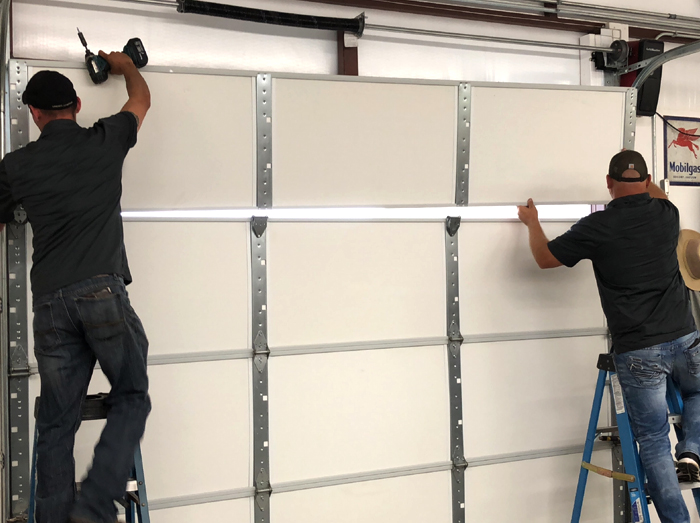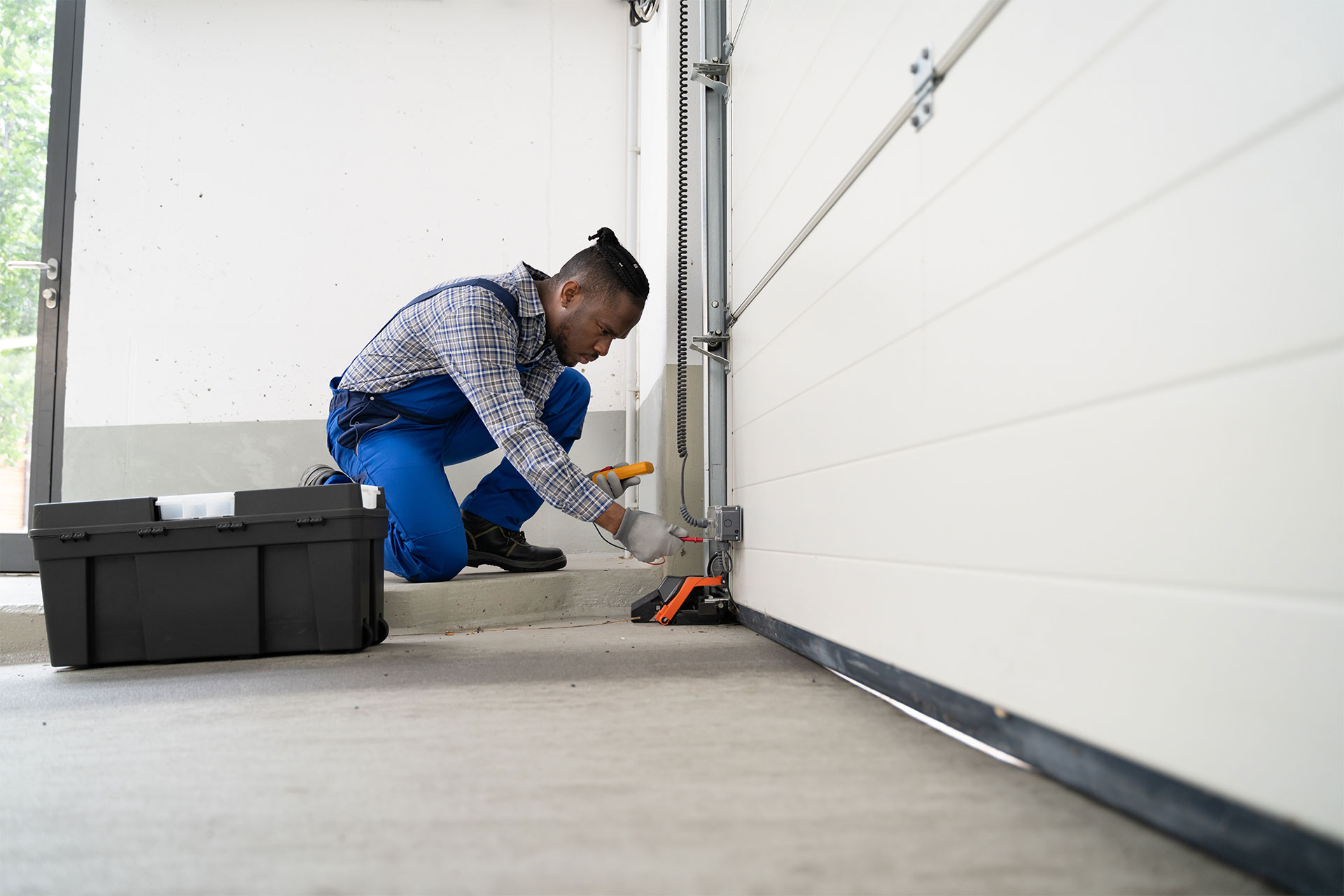Roll-Up Garage Doors Reseda Comprehensive Garage Door Solutions

One of essentially the most telltale signs of a faulty garage door sensor is if the door doesn't shut fully. Instead of fully closing, the door might reverse and open again when it senses an object. In some instances, you could discover that the garage door initiates closing but then quickly reverses back up. This conduct could be attributed to misaligned sensors, permitting them to falsely interpret an obstruction.

Physical obstruction is another issue to contemplate. Dirty or blocked sensors might not operate correctly. Check to see if there's any dirt, debris, or spider webs obstructing the sensor lenses. A easy cleansing may resolve the problem. Using a soft cloth, gently wipe the lenses to make sure they are clear and freed from any obstacles.
Residential Garage Doors Reseda Residential and Commercial Garage Doors
A malfunctioning garage door opener remote can typically be misdiagnosed as a sensor concern. If the remote fails to communicate with the garage door, it’s value testing the sensors instantly. Use the wall button to open and close the door. If the door operates normally with the wall switch but not with the remote, the problem could lie with the remote itself.
Testing the sensors instantly can help determine their operational status. To do that, you can use an object to block the sensor beam whereas the door is closing. If the door reverses upon sensing the obstruction, the sensors are probably functioning correctly. If the door continues to close without reversing, this signifies a problem with one or each of the sensors.
Environmental components may also have an effect on sensor performance. If the sensors are uncovered to heavy rain, snow, or excessive warmth, they might malfunction. Even humidity can play a role in sensor reliability. If the weather has been particularly harsh, consider whether these circumstances might be impacting your sensors.
Electrical points can even result in sensor malfunction. Inspect the wiring connecting the sensors to the garage door opener. Look for frayed or broken wires, which might prevent the sensors from receiving power or communicating properly with the garage door system. If the wiring looks good, check the power supply to the opener itself.
Affordable Garage Doors Reseda Top-Rated Garage Door Services
In some instances, internal malfunctions may happen throughout the sensors. Over time, the inner mechanisms can put on out, resulting in surprising failures. If cleansing and changes do not yield positive results, sensor replacement may be the best course of action (Garage Door Safety Inspection Reseda CA). Many garage door sensors are comparatively inexpensive and straightforward to exchange.
In addition, it could be prudent to seek the advice of the manufacturer’s guide for particular troubleshooting suggestions associated to your mannequin. Each garage door system can differ, and the manual may provide steerage that's significantly related to your situation. Following these guidelines can typically enhance the troubleshooting course of.
Garage Door Opener Brands Reseda CA Commercial Garage Door Repairs
Regular maintenance can lengthen the lifetime of your garage door sensors. Periodic cleansing, testing, and visual inspections might help catch issues early before they escalate into vital problems. Regular care can make positive that your sensors are in good working situation, sustaining the security of your garage door operation.

In summary, the significance of understanding tips on how to tell if a garage door sensor is bad cannot be overstated. From evaluating physical obstruction and sensor alignment to testing the wiring and internal components, a range of things contribute to sensor performance.
Garage Door Supplier Reseda Ca Reviews Custom Garage Door Repairs
Regular maintenance, combined with thorough testing, can also prevent future points you could check here (Garage Door Services Reseda). When unsure, reaching out to professionals can present reassurance and much-needed experience. Ultimately, ensuring that your garage door sensors are functioning correctly enhances the overall security of your house and its automatic systems.
- Check for blinking or solid lights on the sensor; a strong mild usually signifies regular operation, whereas blinking may signify a problem.
- Test the alignment of the sensors; misaligned sensors can prevent the door from functioning properly, leading to a potential failure.
- Look for any visible injury or obstructions close to the sensors; filth, spider webs, or bodily breakage can intervene with their operation.
- Listen for uncommon sounds when the garage door is operated; grinding or clicking noises can point out sensor malfunction.
- Conduct a handbook take a look at by placing an object in the door’s path; if the door doesn't reverse, the sensors could also be defective.
- Inspect the wiring connected to the sensors for frays or loose connections that could disrupt power supply or functionality.
- Evaluate the temperature conditions; extreme weather can affect sensor efficiency, resulting in momentary points.
- Use a multimeter to verify for energy operating to the sensors; a scarcity of voltage can indicate a sensor drawback or wiring problem.
- Consider the age of the sensors; older models may become unreliable and higher changed somewhat than repaired.
- Seek skilled assistance if the problem persists despite troubleshooting; an expert can diagnose points that is most likely not instantly apparent.undefinedHow can I tell if my garage door sensor is malfunctioning?undefinedCheck for a red or amber gentle on the sensor. If it’s not illuminated or blinking, the sensor could additionally be unhealthy. Additionally, you can manually block the sensor and see if the garage door reacts properly — if it doesn't reverse, the sensor would possibly want replacement.
What are the widespread signs of a defective garage door sensor?undefinedCommon indicators embrace the garage door failing to close completely, erratic movement, or not responding to remote commands. A misaligned sensor may additionally set off these points, so inspect their positioning as a part of your diagnostic process.
Can a foul garage door sensor stop the door from closing?undefinedYes, a malfunctioning sensor may cause the garage door to reverse or fail to close. This is a security characteristic designed to stop injuries or accidents, so take notice of the conduct of your garage door.
Garage Door Tune-Up Reseda Custom Garage Door Repairs
How do I clean my garage door sensors?undefinedTo clear garage door sensors, gently wipe the lenses with a gentle, dry cloth. Avoid utilizing harsh chemical compounds, which can harm the sensor. Regular cleaning can enhance performance and prevent sensor-related points.
What should I do if my garage door sensor is misaligned?undefinedCarefully realign the sensors so they face each other directly. Use a stage to verify their positioning. If aligning them doesn’t resolve the problem, think about looking for professional help for additional inspection.
Garage Door Parts Reseda Garage Door Opener Installation
Is it essential to exchange both sensors my latest blog post if one is bad?undefinedWhile it is not strictly needed to replace each, doing so is advisable. Installing a new sensor with an old one would possibly result in compatibility issues, affecting the garage door's efficiency.
Can weather affect the performance of garage door sensors?undefinedYes, excessive weather conditions can impression efficiency. Heavy rain, snow, or humidity might obscure the sensors or affect their alignment. Regular maintenance and inspection during seasonal changes might help mitigate these effects.

Garage Door Keypad Installation Reseda CA Secure Garage Door Solutions
What if my garage door sensor nonetheless doesn’t work after replacement?undefinedIf the brand new sensor doesn’t resolve the issue, verify for wiring issues or seek the assistance of an expert technician. There could additionally be extra points with the garage door opener or other elements that require attention.